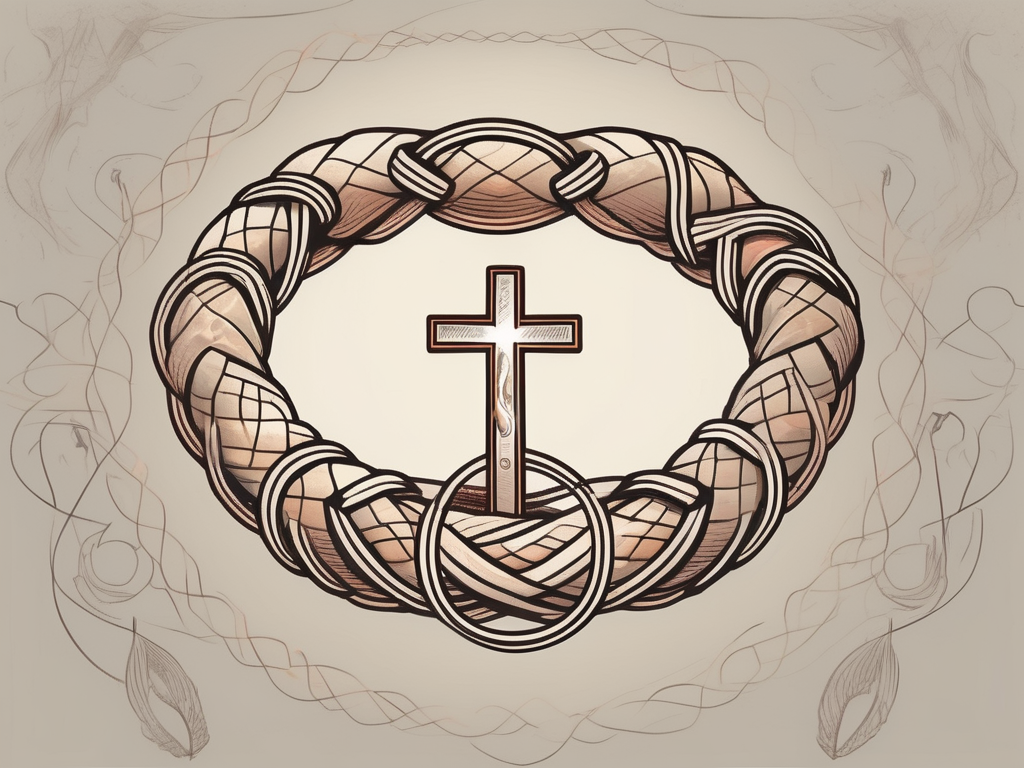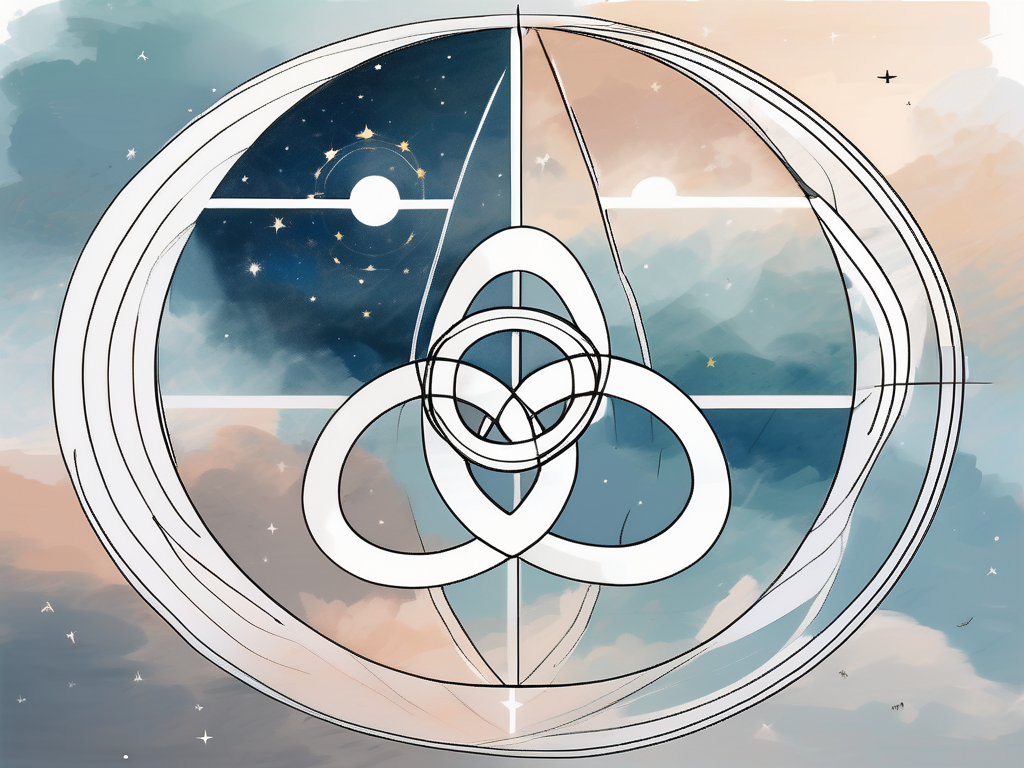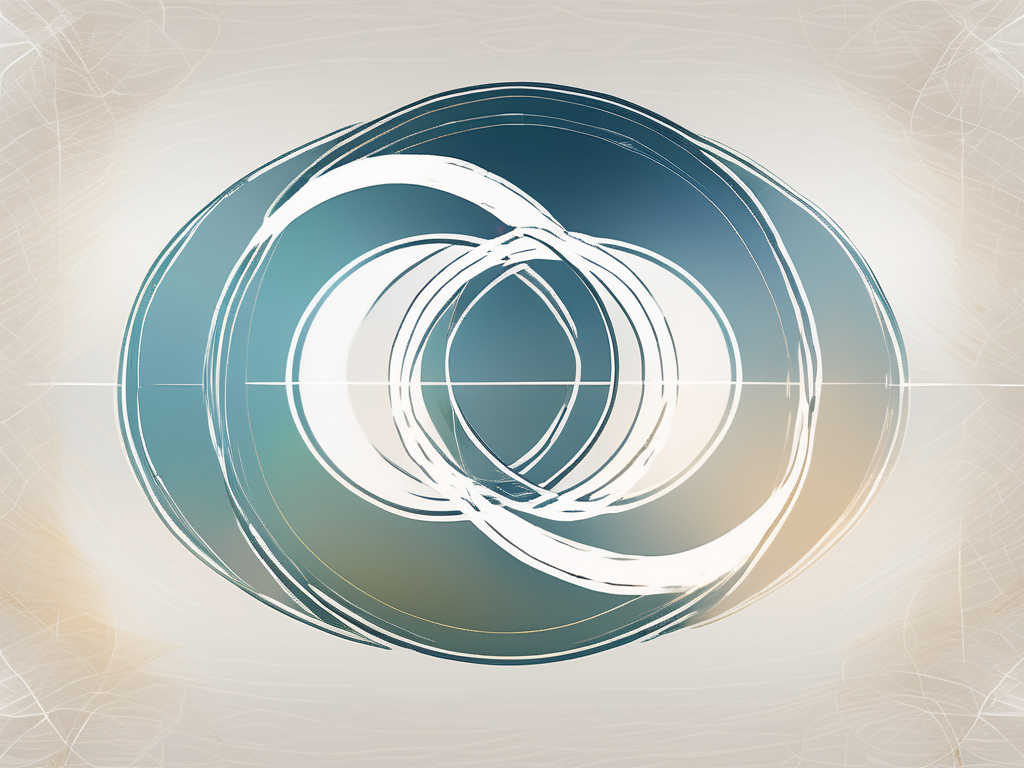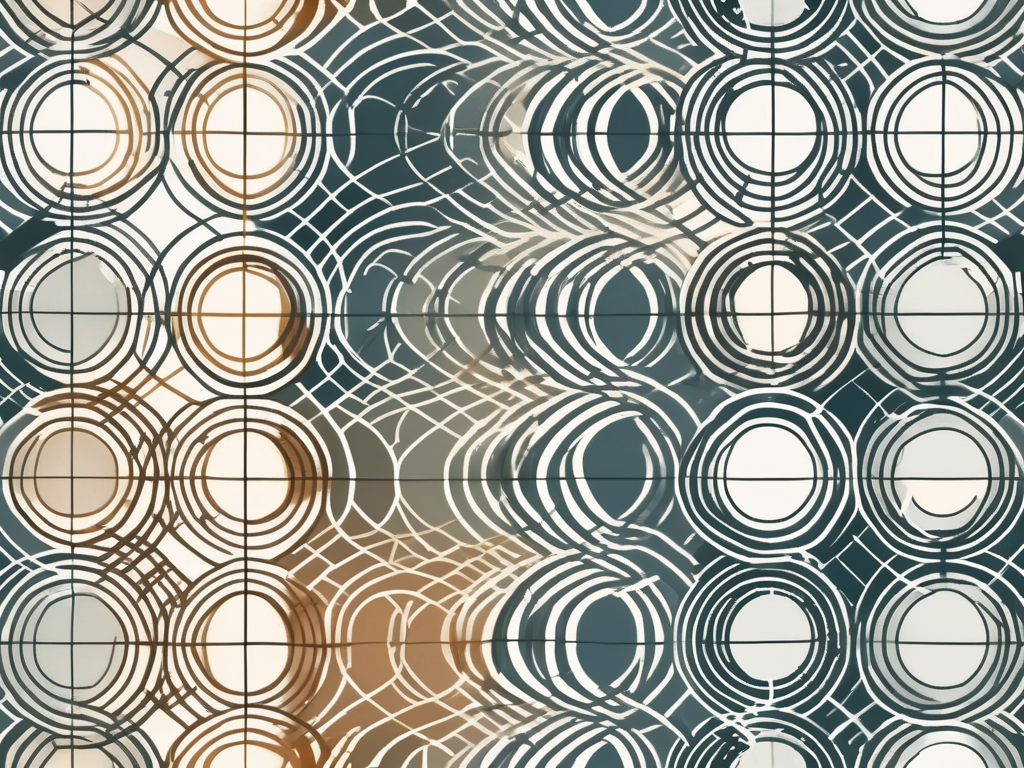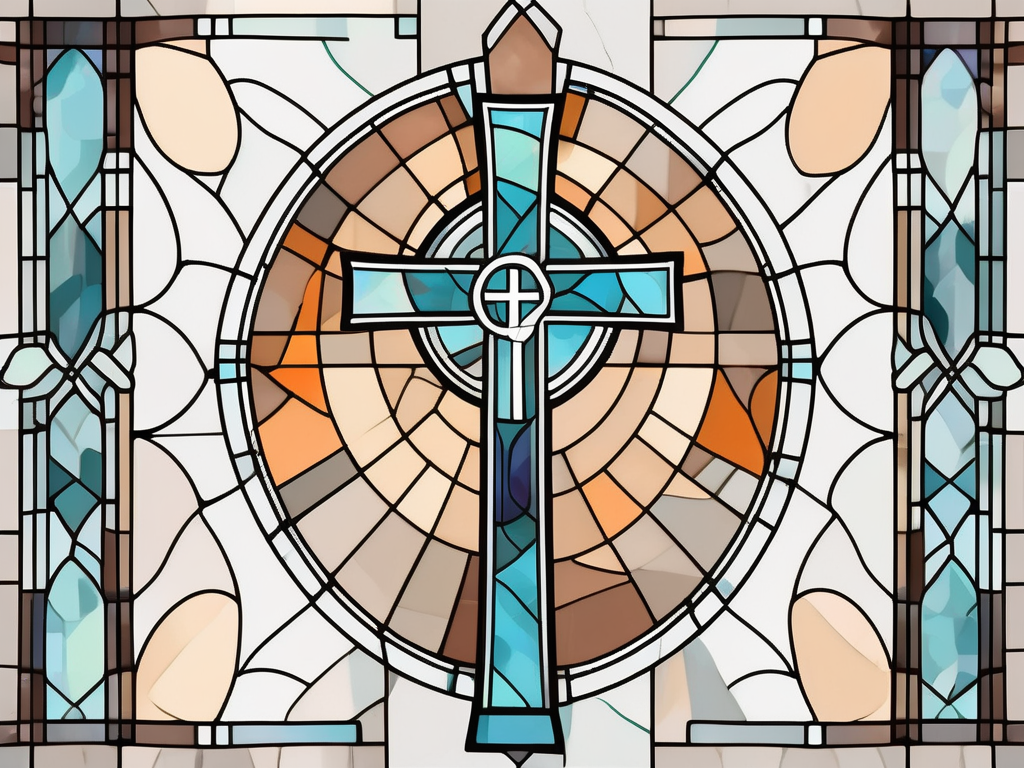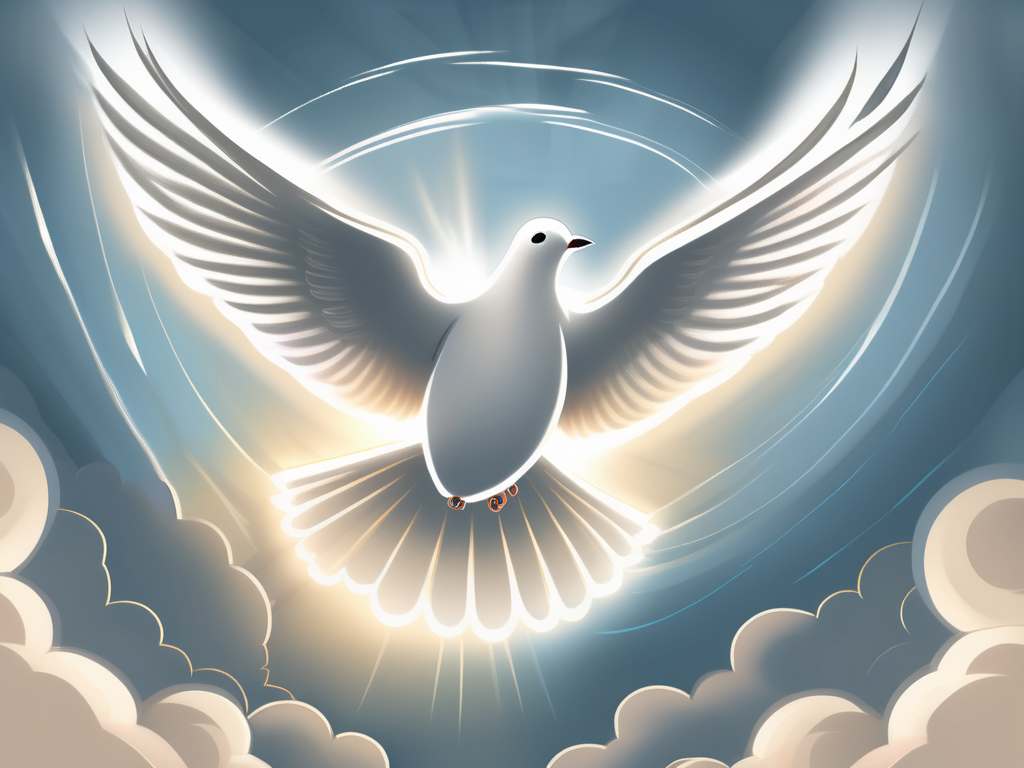As Catholics, our beliefs shape our worldview and understanding of life’s mysteries. One topic that often sparks curiosity and debate is the concept of reincarnation. In this article, we will delve into the relationship and beliefs surrounding Catholics and reincarnation, exploring both the theological and personal perspectives on this intriguing matter.
Understanding Catholic Beliefs
Before we dive into the depths of reincarnation, it is essential to grasp the core tenets of Catholicism. Central to Catholic beliefs is the doctrine of the Trinity, which holds that God exists as three distinct persons: the Father, the Son (Jesus Christ), and the Holy Spirit. The teachings of Jesus Christ, as recorded in the Bible and interpreted by the Church, provide the foundation for Catholic morality and spirituality.
While Catholics look to the Bible as a guide, they also rely on the authority of the Church and its long-standing traditions. Sacraments, such as baptism and communion, play a vital role in Catholic worship and spiritual life. These sacraments are seen as visible signs of God’s grace, conveying spiritual blessings to the faithful.
Furthermore, Catholicism places a strong emphasis on the intercession of saints. Catholics believe that saints, who have lived holy lives and are now in heaven, can intercede on behalf of the living. This belief is rooted in the understanding that the communion of saints extends beyond the earthly realm, connecting all believers across time and space.
Another important aspect of Catholic belief is the veneration of Mary, the mother of Jesus. Catholics view Mary as the epitome of faith and obedience to God. She is seen as a powerful intercessor and a model of virtue for all believers. Devotions to Mary, such as the Rosary, are common practices among Catholics.
With this understanding of Catholic beliefs as our backdrop, let’s explore the concept of the afterlife in Catholicism.
The Core Tenets of Catholicism
Catholicism posits that human beings are created in the image of God and possess an immortal soul. The destiny of the soul, according to Catholic teachings, hinges on the choices made during one’s earthly life. The Church teaches that those who die in a state of grace, having repented their sins and aligned themselves with God’s will, will be welcomed into eternal life in heaven.
Heaven, in Catholic theology, is not simply a place of eternal rest, but a state of perfect union with God. It is described as a place of unimaginable joy, where the souls of the faithful experience the fullness of God’s love and glory.
Conversely, those who reject God’s love and grace may face the consequences of their choices in the afterlife. The Catholic Church teaches that the soul can be cleansed and purified in a state called Purgatory before entering heaven. Purgatory is seen as a temporary state of purification, where the soul is prepared to be in the presence of God. It is believed that prayers and offerings on behalf of the souls in Purgatory can assist in their journey towards heaven.
Additionally, Catholicism acknowledges the existence of hell, a state of eternal separation from God. Hell is understood as the consequence of a willful rejection of God’s love and a persistent refusal to repent. While the Church teaches that hell exists, it does not claim to know the exact nature or location of this state.
These core tenets provide the necessary context for examining the concept of reincarnation within the Catholic tradition. Reincarnation, the belief in the rebirth of the soul in a new body after death, is not a doctrine accepted by the Catholic Church. The Church teaches that each soul is created by God and is unique, with its own individual identity and purpose.
While the concept of reincarnation may be found in other religious traditions, Catholicism emphasizes the importance of the present life and the choices made in it. The focus is on personal growth, moral responsibility, and the pursuit of holiness in this lifetime, rather than the idea of multiple lives and subsequent rebirths.
The Doctrine of Reincarnation
Reincarnation, emanating from Eastern religions like Hinduism and Buddhism, is the belief in successive lives in different bodies. It suggests that each individual’s soul is reborn into a new body after death. While reincarnation is integral to these belief systems, it holds a different place within Catholicism.
Within the Catholic Church, reincarnation is not an official teaching. However, throughout history, some Catholic intellectuals and mystics have explored this concept on a personal level. It is important to note that these individual beliefs do not override the authoritative teachings of the Church.
Origins and Beliefs of Reincarnation
The origins of the belief in reincarnation can be traced back to ancient religious texts and philosophies that predate the birth of Christ. It is a concept that has fascinated and intrigued people for centuries. While not officially recognized by the Catholic Church, the idea of reincarnation has sparked intellectual and spiritual exploration among some members of the faith.
Those who subscribe to the idea of reincarnation often interpret it as a means of spiritual growth and evolution. They suggest that each life presents an opportunity for the soul to learn lessons and progress on its spiritual journey towards ultimate union with God. This belief in the cyclical nature of existence offers a unique perspective on the purpose and meaning of life.
Reincarnation in Different Cultures
Reincarnation is not limited to Eastern religions; it is a prevalent belief in many cultures and religions worldwide. From the ancient civilizations of Egypt and Greece to indigenous tribes of North and South America, various societies have embraced the notion of rebirth.
In ancient Egypt, the concept of reincarnation was closely tied to the belief in the afterlife. Egyptians believed that after death, the soul would undergo a series of trials and judgments before being reborn into a new body. This cycle of death and rebirth was seen as a way to achieve spiritual enlightenment and eternal life.
In ancient Greece, the philosopher Pythagoras is often associated with the belief in reincarnation. He taught that the soul is immortal and that it goes through a series of reincarnations, each time learning and growing in wisdom. This idea of the soul’s journey towards perfection resonated with many Greeks and influenced their understanding of life and death.
Indigenous tribes in North and South America also have their own beliefs in reincarnation. For example, the Hopi people of North America believe in the concept of “kachinas,” which are spiritual beings that can be reborn in human form. This belief in the cyclical nature of life and the interconnectedness of all beings is deeply ingrained in their culture.
While these cultural beliefs are fascinating and offer different perspectives on the nature of existence, it is important to note that they do not directly influence the official teachings of the Catholic Church. The Church’s teachings on the afterlife and the soul’s journey are rooted in its own theological traditions and interpretations of scripture.
Catholic Church’s Stance on Reincarnation
While the Catholic Church acknowledges the widespread fascination surrounding reincarnation, it firmly maintains that the soul’s journey is a one-time occurrence. The official teachings of the Church do not support the idea of multiple lives and rebirth. Rather, Catholic doctrine emphasizes the importance of salvation through faith in Jesus Christ as the path to eternal life.
The Catholic Church’s stance on reincarnation is rooted in its theological teachings and interpretations. According to official Catholic theology, each person is given one life on Earth to cultivate a relationship with God. This singular life is seen as a precious opportunity to love, serve, and be judged by God based on one’s choices and actions.
Through Jesus Christ’s sacrifice, Catholics believe in the redemption of humanity and the potential for eternal salvation. It is through faith in Jesus Christ that Catholics find hope and assurance of eternal life. This belief in the significance of Jesus Christ’s sacrifice is central to Catholic teachings and shapes their understanding of the soul’s journey.
Official Teachings and Interpretations
While the Church has not explicitly condemned personal beliefs in reincarnation, it affirms that these ideas lie outside the realm of official Catholic teaching. The weight of authoritative teachings holds reincarnation as incompatible with the core principles of Catholicism.
Catholic doctrine emphasizes the uniqueness and irreplaceability of each individual life. It teaches that God has created each person with a specific purpose and plan, and that one’s actions and choices in this life have eternal consequences. The belief in a single life on Earth aligns with the Catholic understanding of the soul’s journey towards salvation.
Furthermore, the Catholic Church’s teachings on the resurrection affirm the belief in the resurrection of the body at the end of time. This belief underscores the idea that each individual will be judged and experience eternal life or damnation based on their actions in their one earthly life.
Theological Arguments Against Reincarnation
Theological arguments against reincarnation primarily revolve around the concept of salvation and the unique role of Jesus Christ within Catholic theology. The belief that Jesus Christ, as the Son of God, offered salvation through his life, death, and resurrection is central to Catholic teachings. Accepting reincarnation would dismantle this foundational belief, as it suggests multiple opportunities for salvation.
Moreover, the Catholic Church teaches that individuals have only one earthly life to choose between good and evil. This understanding of a singular life is seen as essential for moral responsibility and accountability. The idea of repeated lives may undermine the significance and moral weight of our actions, rendering judgment and salvation ambiguous.
Additionally, the Catholic Church emphasizes the importance of personal responsibility and the need for repentance and reconciliation. The belief in one life allows individuals to fully engage with the reality of their actions and seek forgiveness and transformation through the sacraments and the grace of God.
In conclusion, while the Catholic Church acknowledges the fascination surrounding reincarnation, it firmly upholds the belief in a single life on Earth as the soul’s journey towards salvation. The Church’s teachings on the uniqueness of each individual and the redemptive power of Jesus Christ’s sacrifice shape its understanding of the soul’s eternal destiny.
The Intersection of Catholicism and Reincarnation
Despite the Catholic Church’s official rejection of reincarnation, instances of overlapping beliefs and mystical experiences have been documented throughout history.
One such instance is the incorporation of elements of Eastern thought by certain Catholic mystics and theologians. These individuals, while not directly embracing the concept of reincarnation, believe that the spiritual journey of the soul can involve purification and growth, leading to a deeper union with God. They view this journey as a process of continuous transformation, akin to the cycle of birth and rebirth in Eastern philosophies.
These personal interpretations, however, should be understood as subjective experiences and not as binding doctrine. They reflect the unique perspectives and spiritual insights of these mystics and theologians, but do not hold the same weight as official Church teachings.
Instances of Overlapping Beliefs
Exploring further, we find that there are instances where Catholicism and reincarnation intersect in more subtle ways. For example, some Catholic scholars have drawn parallels between the concept of reincarnation and the Catholic belief in the resurrection of the dead. They argue that both ideas involve the notion of life after death and the transformation of the soul.
These scholars suggest that the resurrection of the dead, as understood in Catholic theology, can be seen as a form of spiritual rebirth. Just as reincarnation implies the soul’s journey through multiple lives, the resurrection of the dead signifies the soul’s transition from earthly existence to eternal life. In this perspective, the two concepts share a common thread of spiritual transformation and renewal.
Controversies and Debates
The question of whether Catholics can believe in reincarnation remains a source of debate within the Church. Some argue for a more flexible interpretation of Catholic doctrine, suggesting that personal beliefs in reincarnation do not necessarily contradict essential teachings. They emphasize the importance of individual conscience and the freedom to explore different spiritual perspectives.
On the other hand, there are those who contend that adherence to official Church doctrine is paramount. They argue that the rejection of reincarnation by the Catholic Church is based on theological and doctrinal considerations that cannot be compromised. They believe that embracing reincarnation would undermine core Catholic teachings and the unique salvific role of Jesus Christ.
Despite these debates, it is important to note that the Catholic Church’s official position remains firm in its rejection of reincarnation. The Church views reincarnation as incompatible with its teachings on the nature of the soul, the resurrection of the dead, and the redemptive work of Jesus Christ.
Ultimately, the intersection of Catholicism and reincarnation is a complex and multifaceted topic. While there may be instances of overlapping beliefs and mystical experiences, the official stance of the Catholic Church stands in opposition to the concept of reincarnation. The exploration of this intersection serves as a reminder of the diverse spiritual perspectives and ongoing discussions within the Catholic tradition.
Personal Beliefs and Interpretations
Catholic Individuals and Reincarnation
Within the Catholic community, personal beliefs on reincarnation vary significantly. While the Church encourages each person to develop a personal relationship with God, it also emphasizes the importance of aligning one’s beliefs with the authoritative teachings of the Church. As such, Catholics who hold beliefs in reincarnation often do so outside the official dogma of Catholicism.
The Role of Personal Faith and Experience
In matters of personal faith, experience and reflection play a crucial role. While the Catholic Church provides a framework for belief, individual Catholics often engage in spiritual exploration and discernment. Personal experiences may influence one’s views on reincarnation, but they should be reflective of Catholic teachings and kept in dialogue with the Church community.
In conclusion, the relationship between Catholics and reincarnation is complex and multifaceted. While the official teachings of the Catholic Church reject the concept of reincarnation, there have been instances where personal interpretations and mystical experiences have brought these beliefs into conversation. Ultimately, personal beliefs and practices should be guided by a commitment to the core tenets of Catholicism, a reverence for authoritative teaching, and a respectful engagement with the broader Catholic community.
